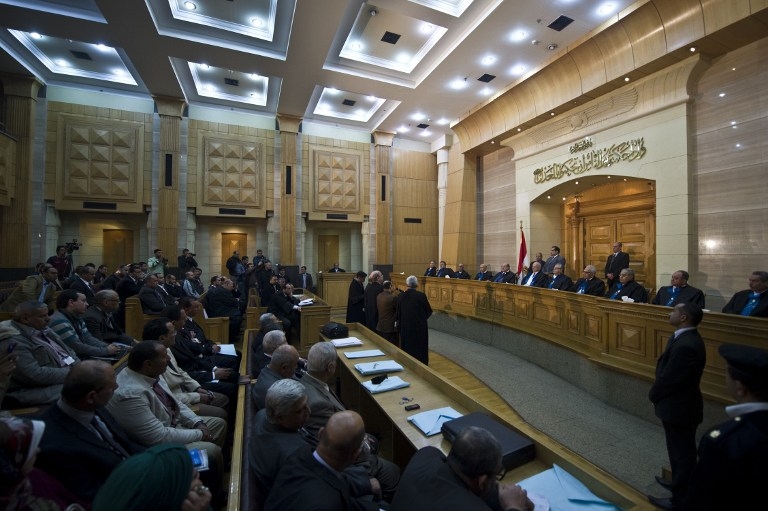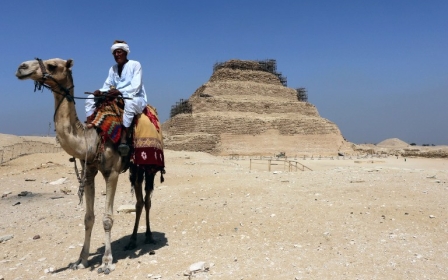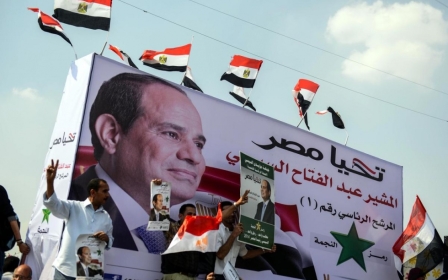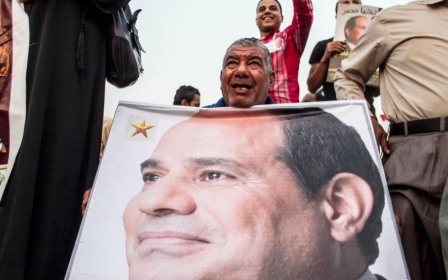Egypt court ruling threatens election timetable

Egypt's constitutional court ruled on Sunday that parts of the law organising parliamentary elections starting 21 March violate the charter, in a decision that may force a delay.
The constitutional court said sections of the law dividing the electoral districts were unconstitutional.
The administrative court, which rules on state-related matters, will now decide whether to formally rule on delaying the election.
President Abdel Fattah al-Sisi ordered that the law be redrafted within a month and asked that "legal measures be undertaken to avoid delaying" the election, his office said.
Following President's Sisi's annoucement, Egypt's electoral commission said that there will be a new timetable for a parliamentary election.
The parts of the law deemed unconstitutional will be revised and then "there will be a new timetable for the procedures" for the election, the commission said in a statement.
It was not immediately clear how long the election would be delayed for.
Lawyers who appealed against the law had said it failed to divide districts in a way that would adequately represent the electorate.
One of the lawyers told AFP that the ruling meant the election will be delayed and the process will start from scratch.
"The election will be delayed and the process will have to start from the beginning," said Mohamed Abdel Wahhab.
Former constitutional court judge Tahany al-Gebaly told AFP it was not immediately clear whether the poll would be pushed back or for how long.
The law may be amended in time for the election to start on schedule, but if candidates have to register again it would be delayed, she said.
The election, currently set to be held between 21 March and 7 May, would be the first since army chief Sisi overthrew former president Mohamed Morsi in 2013.
After Morsi's ousting, Sisi announced plans for a new constitution, to be followed by presidential and parliamentary elections.
The new charter was adopted in January 2014 and Sisi elected president in May.
The same court had dissolved the previous parliament, which was elected after the 2011 uprising that forced longtime strongman Hosni Mubarak from power.
It ruled that parts of the law under which it was elected were unconstitutional.
That decision granted broad legislative powers to the president in the absence of an assembly, and Sisi decreed the new electoral law.
The upcoming election is to be held under a complex system that is supposed to produce a representative parliament.
Twenty-seven of the assembly's 567 seats are to be filled directly by the president, with the rest contested through party lists or on an individual basis.
Critics say that with Morsi's Muslim Brotherhood having been crushed and banned, the elections are likely to be dominated by Sisi loyalists.
The elections are important to Sisi as he seeks to shore up his standing in the eyes of Western governments that condemned his overthrow of Morsi - the country's first freely elected leader.
A government crackdown overseen by Sisi and targeting the Brotherhood has left hundreds dead and thousands jailed.
Even secular and liberal activists, including several who played a prominent role in the 2011 revolt against Mubarak, have been jailed for holding unauthorised protests.
Middle East Eye propose une couverture et une analyse indépendantes et incomparables du Moyen-Orient, de l’Afrique du Nord et d’autres régions du monde. Pour en savoir plus sur la reprise de ce contenu et les frais qui s’appliquent, veuillez remplir ce formulaire [en anglais]. Pour en savoir plus sur MEE, cliquez ici [en anglais].




